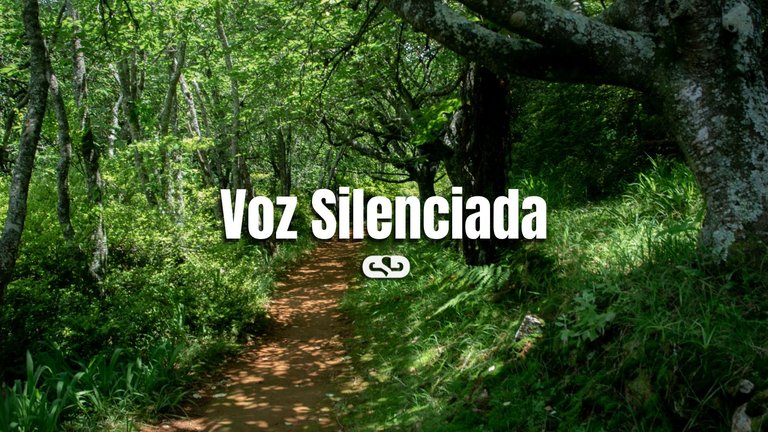 |
|---|
No soy filósofo, ni pretendo serlo.
Desde hace rato, hay una pregunta que no me deja quieto y he intentado buscarle respuesta con resultados en negativo. ¿Por qué la filosofía griega o la sabiduría milenaria China, son puestas en un pedestal mientras que el pensamiento de nuestros originarios en América queda arrinconado o apenas digno de mención?
Tengo entendido que las referencias a la filosofía comienzan en Grecia con Sócrates, Platón, Aristóteles. Luego China con Confucio, Lao-Tsé, Sun Tzu. Se les estudia, se les cita, se les considera padres del pensamiento universal. Sus ideas trascienden y son enseñadas como verdades con peso absoluto.
En cambio, cuando se habla de la sabiduría de los pueblos originarios de América, los que estaban aquí mucho antes de que llegaran los colonizadores, el tono cambia. Ya no se les llama filósofos, sino portadores de creencias, mitos, costumbres o tradiciones populares. La palabra filosofía se reserva para el pensamiento racional, sistemático y, por lo general, escrito. Y en ese modelo, nuestras voces ancestrales parecen no encajar.
Pero ¿y si ese modelo está equivocado? ¿Y si lo verdaderamente profundo no es lo que se explica con palabras difíciles, sino lo que se vive con coherencia?
Nuestros pueblos indígenas quizás no dejaron tratados escritos (o tal vez fueron destruidos), pero sí observaron el mundo con atención, aprendieron de los ciclos de la naturaleza, establecieron códigos éticos para la convivencia y respetaron lo invisible, lo espiritual, como parte integral de la vida.
¿No es eso también filosofía?
El problema, a mi parecer, no es la falta de sabiduría, sino el filtro con el que medimos lo que llamamos “saber”. Un filtro construido por el poder colonial, que impuso su lenguaje, su religión, su estructura mental, y despreció todo lo que no encajara en su visión. Así, la palabra del chamán fue silenciada por la del sacerdote. La visión circular del tiempo fue desplazada por la línea recta del progreso. El equilibrio con la naturaleza fue reemplazado por la explotación. Y la sabiduría vivida fue ridiculizada por no haber sido escrita.
Hoy, cuando el mundo tambalea entre crisis de todo tipo, especialmente de sentido y conexión espiritual, muchos comienzan a mirar hacia las filosofías orientales buscando respuestas. Se habla del Tao, del Zen, del minimalismo... Pero seguimos sin mirar hacia adentro, hacia lo nuestro. Hacía los saberes que fueron borrados a fuerza de espada y cruz.
Este no es un ensayo académico. Son apenas interrogantes, algo que me viene haciendo ruido.
¿Por qué seguimos creyendo que la sabiduría viene solo de lejos y de afuera, cuando también habita debajo de nuestros pies?
Confieso que dudé en manifestar esto, porque sé que más de uno podría tildarme de pertenecer a alguna doctrina política en decadencia. Pero no es eso. Es una inquietud que me ha tenido centrado y que, al final, se escapó a través de estas letras.
Algún día, alguien con el conocimiento y el estudio pertinente debe reivindicar las filosofías indígenas. No como un acto de nostalgia, sino de justicia. Y quizás, de supervivencia.
Porque en un mundo donde se ha perdido el equilibrio, volver a escuchar lo que la selva susurra, lo que el río señala, lo que el viento grita, puede ser nuestra única salida.
Todos los Derechos Reservados. © Copyright 2021-2025 Germán Andrade G.
Todas las imágenes fueron editadas usando CANVA.
Es mi responsabilidad compartir con ustedes que, como hispanohablante, he tenido que recurrir al traductor Yandex Translate para poder llevar mi contenido original en español al idioma inglés. También, hago constar que he utilizado la herramienta de revisión gramatical Grammarly.
Caracas, 31 de julio del 2025
English
 |
|---|
I am not a philosopher, nor do I pretend to be one.
For a while now, there has been a question that won't leave me still and I've been trying to find an answer to it with negative results. Why is Greek philosophy or ancient Chinese wisdom put on a pedestal while the thought of our natives in America is cornered or hardly worthy of mention?
I understand that references to philosophy begin in Greece with Socrates, Plato, and Aristotle. Then China with Confucius, Lao-Tse, and Sun Tzu. They are studied, they are quoted, they are considered the fathers of universal thought. His ideas transcend and are taught as truths with absolute weight.
On the other hand, when talking about the wisdom of the original peoples of America, those who were here long before the colonizers arrived, the tone changes. They are no longer called philosophers, but bearers of beliefs, myths, customs, or folk traditions. The word philosophy is reserved for rational, systematic, and, usually, written thinking. And in that model, our ancestral voices don't seem to fit.
But what if that model is wrong? What if the truly profound is not what is explained with difficult words, but what is lived with coherence?
Our indigenous peoples may not have left written treatises (or perhaps they were destroyed), but they did observe the world, learned from the cycles of nature, established ethical codes for coexistence, and respected the invisible, the spiritual, as an integral part of life.
Isn't that also philosophy?
The problem, it seems to me, is not the lack of wisdom, but the filter with which we measure what we call “knowing”. A filter built by the colonial power, which imposed its language, its religion, its mental structure, and despised everything that did not fit into its vision. Thus, the shaman's word was silenced by the priest's. The circular vision of time was displaced by the straight line of progress. The balance with nature was replaced by exploitation. And the lived wisdom was ridiculed for not having been written.
Today, when the world is teetering between crises of all kinds, especially of spiritual meaning and connection, many begin to look for answers in Eastern philosophies. They talk about Tao, Zen, minimalism... But we still do not look inward, towards our own, the knowledge that was erased by the force of sword and cross.
This is not an academic essay. They are just questions, something that is making noise to me.
Why do we keep believing that wisdom comes only from afar and from outside, when it also dwells under our feet?
I confess that I hesitated to express it, because I know that more than one could label me as belonging to some decaying political doctrine. But it's not that. It is a concern that has kept me focused and that, in the end, escaped through these words.
Someday, someone with the relevant knowledge and study must vindicate indigenous philosophies. Not as an act of nostalgia, but of justice. And maybe for survival.
Because in a world where balance has been lost, listening again to what the jungle whispers, what the river signals, what the wind screams, may be our only way out.
All rights reserved. © Copyright 2021-2025 Germán Andrade G.
All images were edited using CANVA.
Caracas, July 31, 2025
It is my responsibility to share with you that, as a Spanish speaker, I have had to resort to the translator Yandex Translate to translate my original Spanish content into English. I also state that I have used the grammar-checking tool Grammarly.

